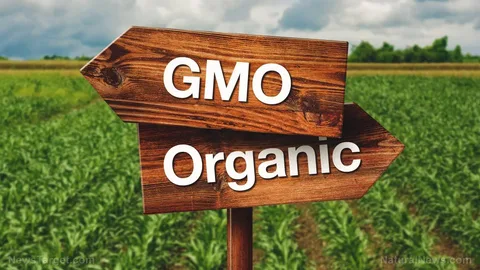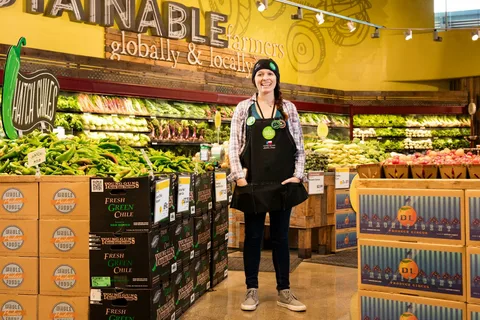Organic Supply Chain In today’s world, the way we source and deliver products matters more than ever. The term is becoming increasingly popular as consumers and businesses seek sustainable practices. In this blog post, we’ll explore what an is, why it’s important, and how it can benefit both the environment and businesses. Whether you’re a small business owner or just curious about sustainable practices, this guide will help you understand the s impact.
What is an Organic Supply Chain of Organic Supply Chain
An organic supply chain refers to the processes involved in producing and delivering organic products. These products are grown without synthetic fertilizers, pesticides, or genetically modified organisms (GMOs). The focuses on sustainable practices, ensuring that every step from the farm to the consumer is environmentally friendly.
The Importance of an Organic Supply Chain
The rise of an comes from the growing awareness of environmental issues. Here are a few reasons why this concept is so important:
- Health Benefits: Organic foods are often healthier. They are free from harmful chemicals, making them safer for consumers.
- Environmental Impact: Sustainable practices help reduce pollution and conserve resources. This is crucial for combating climate change.
- Biodiversity: Organic farming supports biodiversity by encouraging a variety of plants and animals, which is essential for a balanced ecosystem.
- Economic Opportunities: The organic market is growing, creating jobs and opportunities for farmers and businesses focused on sustainable practices.
Key Components of an Organic Supply Chain
To fully understand the , let’s break down its key components:
1. Sourcing Organic Materials of Organic Supply Chain
The first step in the is sourcing raw materials. This means finding farms that follow organic practices. It’s important to ensure that these farms are certified organic, which means they meet specific standards set by regulatory bodies.
2. Processing and Manufacturing
Once the materials are sourced, they go through processing. This could involve washing, cutting, or packaging. In an , the processing methods should also align with organic standards. For example, using natural preservatives instead of synthetic ones.
3. Distribution
After processing, the products need to be distributed. This involves transporting them to stores or directly to consumers. Sustainable transportation methods, like electric vehicles or bicycles, can be used to reduce carbon footprints.
4. Retail
Retailers play a significant role in the organic supply chain. Stores need to ensure that they stock organic products and educate consumers about their benefits. Many consumers are willing to pay more for organic items because they value sustainability and health.
5. Consumer Education
Finally, educating consumers about organic products is essential. People should know the benefits of choosing organic over conventional options. This education can happen through marketing campaigns, in-store promotions, or online resources.
The Benefits of an Organic Supply Chain
Implementing an organic supply chain offers numerous benefits for businesses and the environment. Here are some of the key advantages:
1. Increased Customer Loyalty
Consumers today are more aware of where their food comes from and how it affects the environment. Businesses that adopt an organic supply chain can attract loyal customers who value sustainability. According to research, many consumers are willing to pay a premium for organic products, leading to increased profits for businesses that invest in this area.
2. Cost Savings
While it may seem that organic practices are more expensive upfront, they can lead to significant cost savings in the long run. Sustainable practices often result in less waste and more efficient use of resources, ultimately reducing operational costs.
3. Compliance with Regulations
As the demand for organic products grows, so do regulations surrounding their production and sale. By implementing an organic supply chain, businesses can ensure compliance with these regulations, avoiding potential fines and legal issues.
4. Positive Environmental Impact
An organic supply chain reduces harmful chemicals in the environment. By choosing organic practices, businesses contribute to cleaner air, soil, and water. This helps protect ecosystems and supports biodiversity.
5. Community Engagement
Adopting an organic supply chain can also foster community engagement. Many organic farms work with local communities to promote sustainability and educate people about healthy eating habits. This builds a sense of community and encourages consumers to support local businesses.
Challenges of Implementing an Organic Supply Chain
While there are many benefits to an organic supply chain, there are also challenges. Here are some of the common obstacles businesses might face:
1. Higher Costs
Transitioning to organic practices can be costly for businesses. Sourcing organic materials may be more expensive, and the certification process can involve fees and inspections. However, many businesses find that the long-term benefits outweigh these initial costs.
2. Limited Availability of Organic Products
Depending on the location, finding enough organic suppliers can be a challenge. Businesses may need to invest time in building relationships with local organic farms and suppliers.
3. Education and Training
Implementing an organic supply chain requires training for employees. They need to understand organic practices and how to communicate these benefits to customers. This can take time and resources.
How to Create an Organic Supply Chain
Creating an organic supply chain may seem daunting, but businesses can take it step by step. Here’s a simple guide to help you get started:
1. Assess Your Current Practices
Take a close look at your current supply chain. Identify areas where you can incorporate organic practices, such as sourcing materials or reducing waste.
2. Build Relationships with Organic Farmers
Networking with local organic farmers can provide access to high-quality ingredients. Visit farms, attend farmers’ markets, and participate in local events to connect with potential suppliers.
3. Invest in Employee Training
Make sure your employees understand organic practices and the importance of sustainability. Provide training sessions and resources to help them communicate effectively with customers.
4. Promote Your Organic Products
Once you’ve implemented organic practices, promote them! Use social media, your website, and in-store displays to educate consumers about the benefits of organic products.
5. Monitor and Adjust
Finally, keep track of your progress. Monitor your supply chain’s performance and make adjustments as needed. This will help you stay on track and improve your practices over time.
Real-World Examples of Organic Supply Chains
Many companies have successfully implemented. Here are a couple of examples:
1. Whole Foods Market
Whole Foods is known for its commitment to organic products. The company sources its food from local and organic farms and emphasizes transparency in its supply chain. They educate consumers about the benefits of organic products, which has helped build a loyal customer base.
2. Annie’s Homegrown
Annie’s Homegrown is a popular brand that focuses on organic snacks and meals. They prioritize sourcing organic ingredients and work closely with farmers to ensure quality. Their commitment to sustainability has resonated with consumers, leading to significant growth.
Conclusion
The is not just a trend; it represents a significant shift towards sustainability and health. By adopting organic practices, businesses can create a positive impact on the environment while building customer loyalty and reducing costs. The journey to an may come with challenges, but the benefits far outweigh the obstacles.
If you’re interested in exploring more about sustainable practices, check out Sustainable Agriculture Research and Education for valuable resources and insights. The future of business is organic, and it’s time to join the movement.





